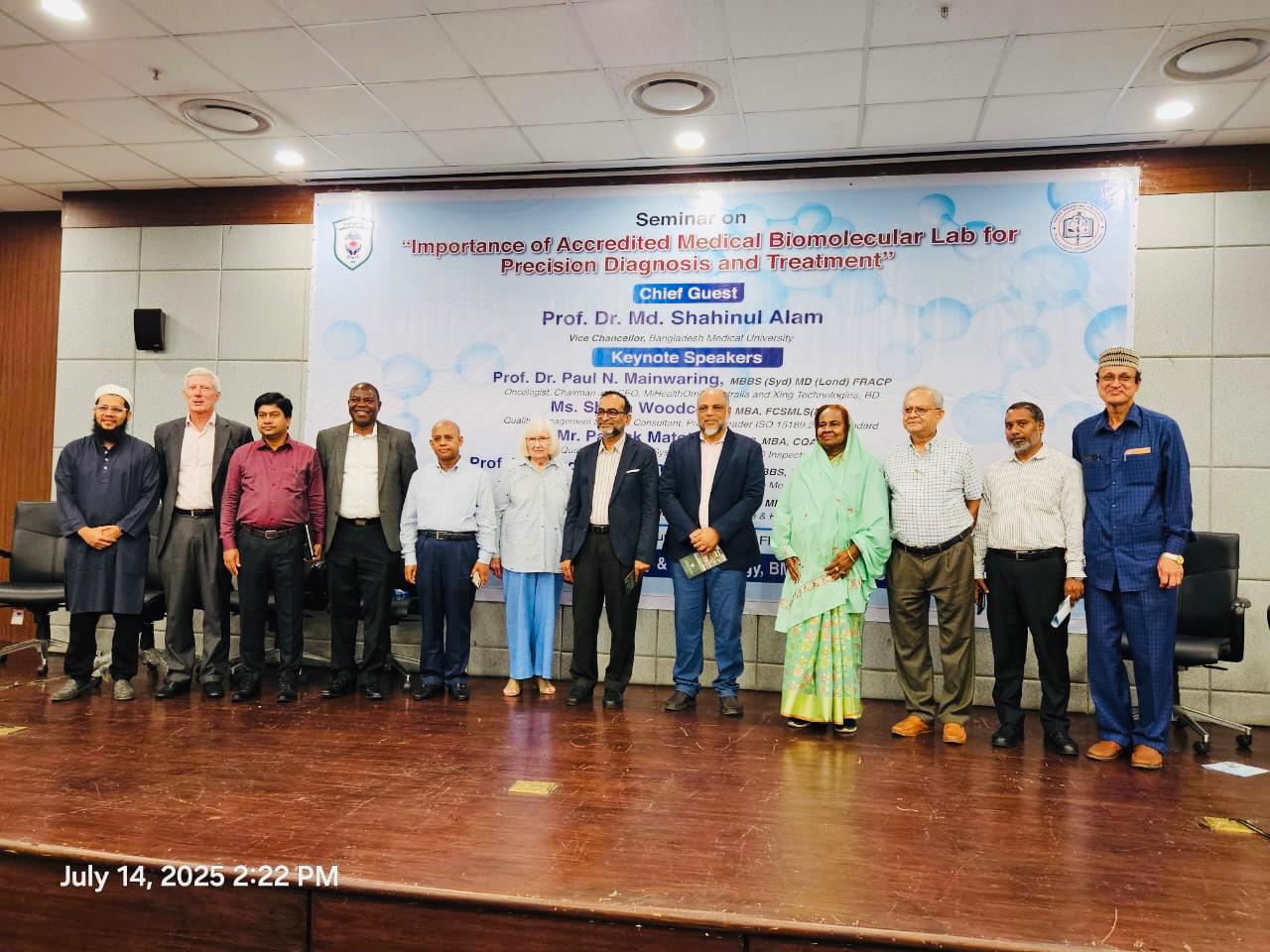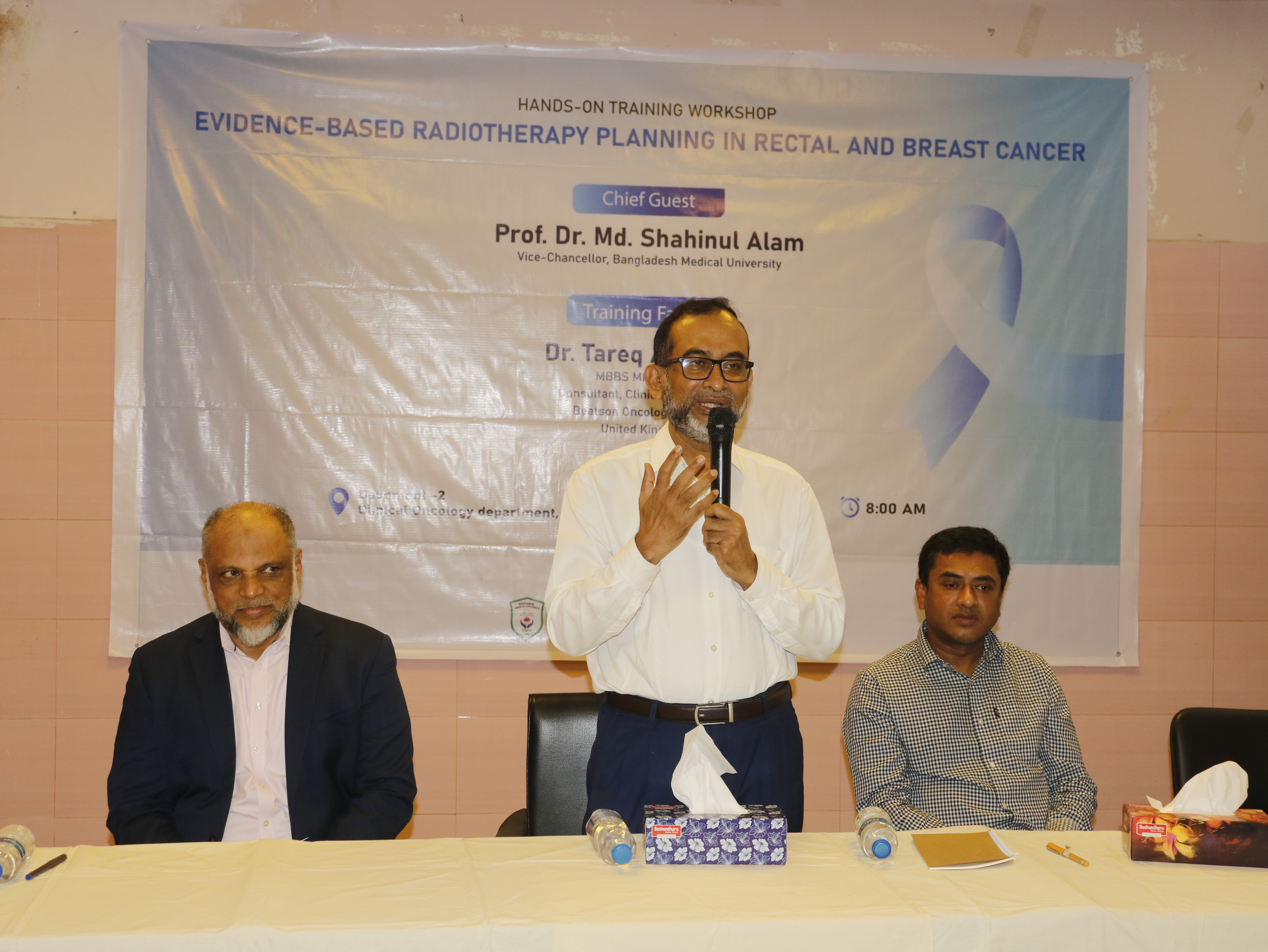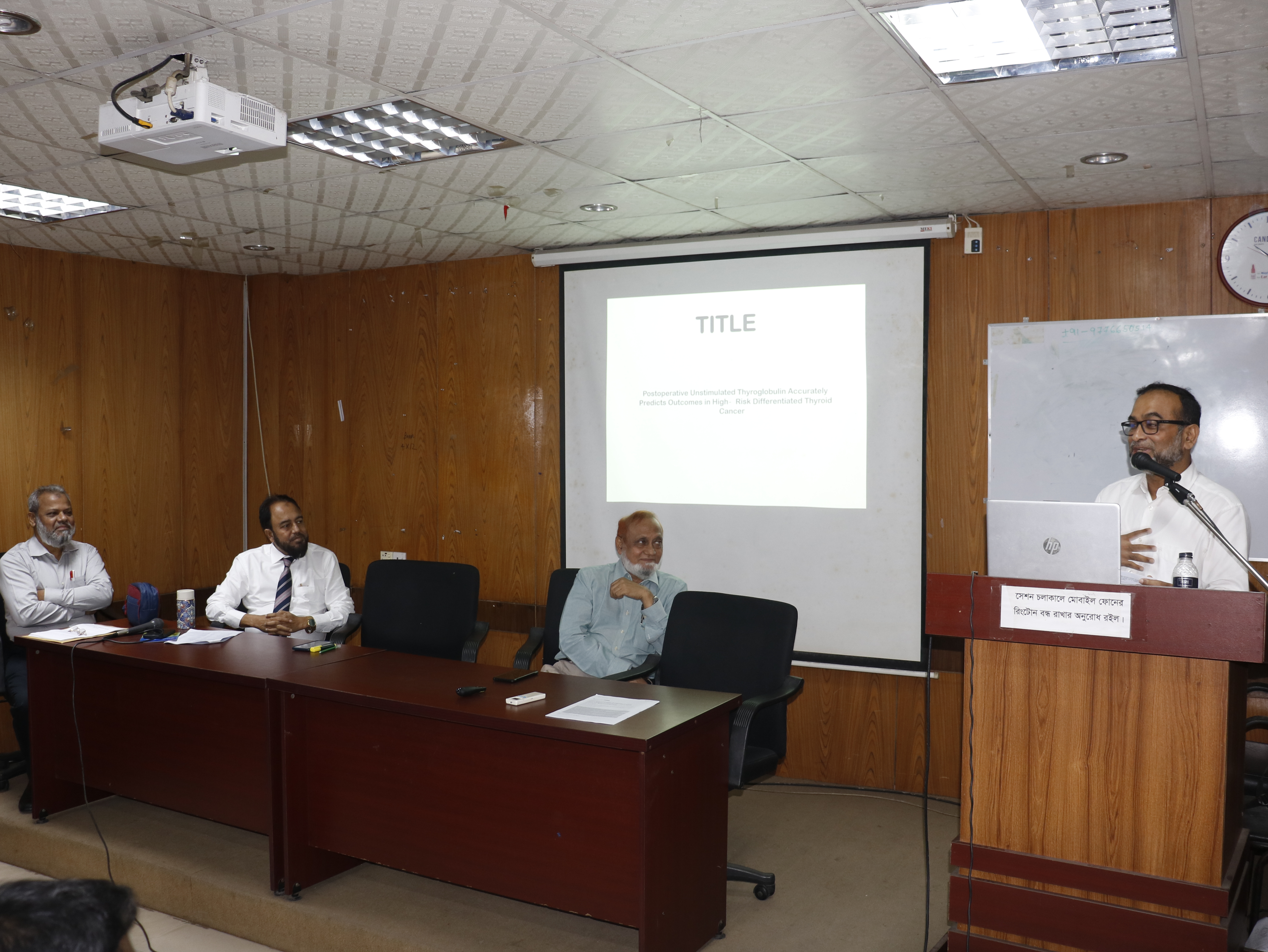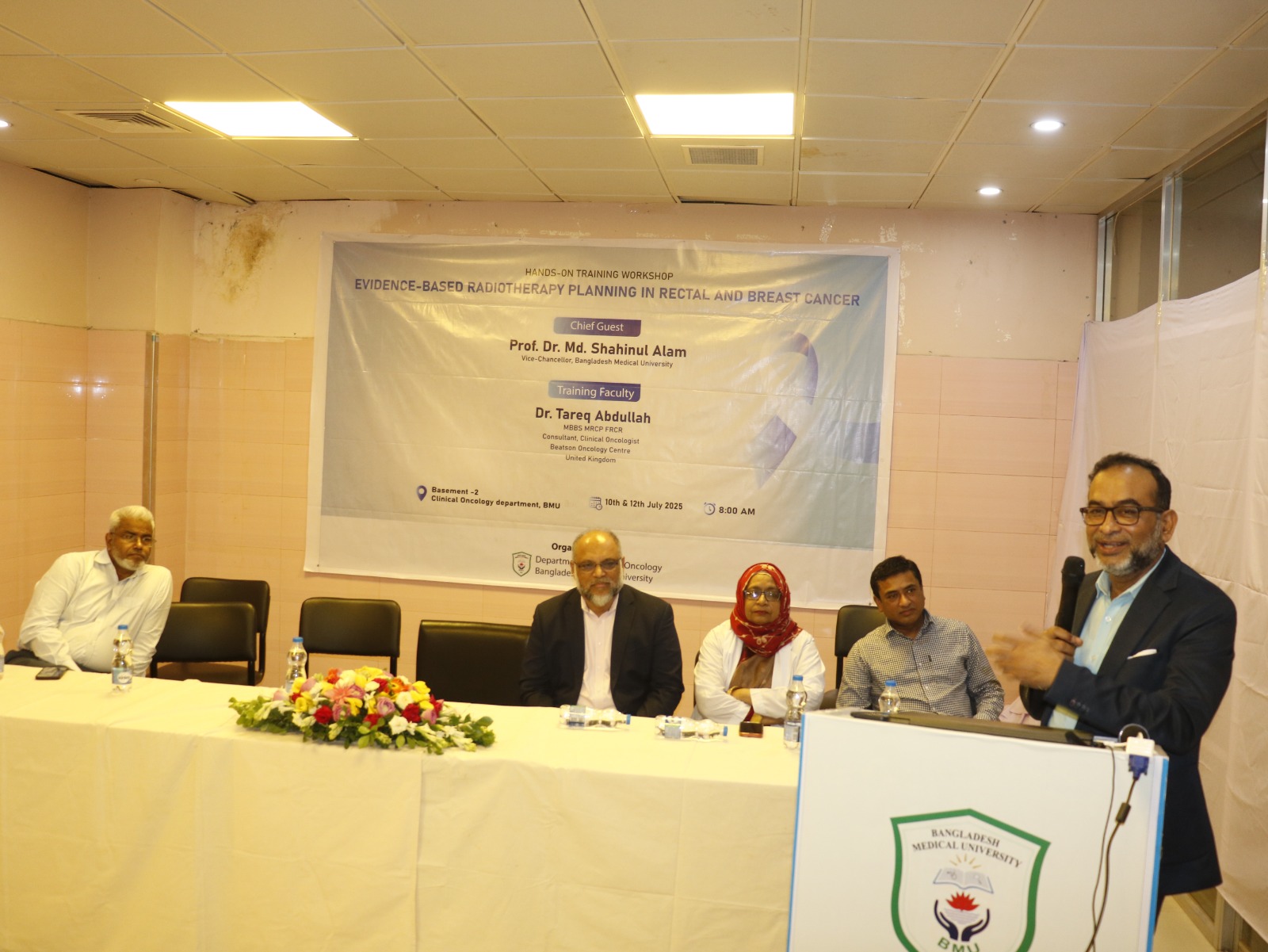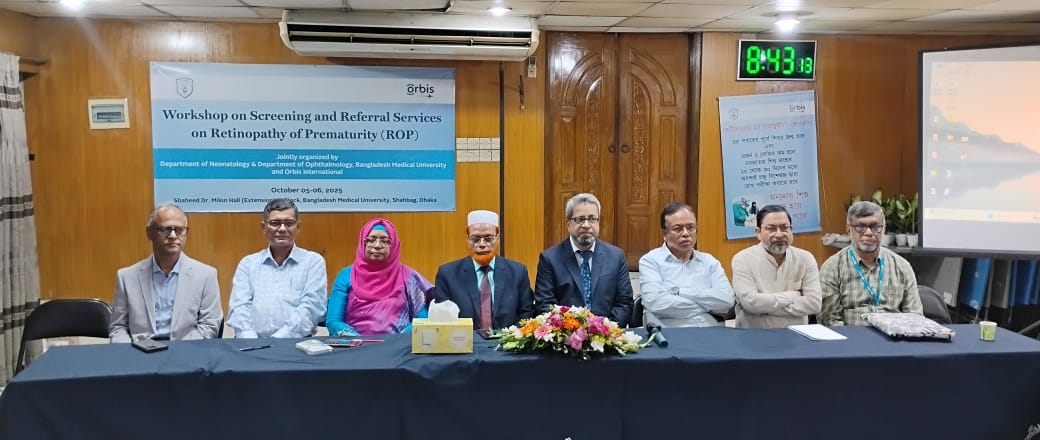
‘No Baby Should Go Blind’: Workshop at BMU Calls for Stronger Action Against ROP in Bangladesh
07 Oct, 2025 04:00 PM - 07 Oct, 2025 05:00 PM |
‘No Baby Should Go Blind’: Workshop at BMU Calls for Stronger Action Against ROP in Bangladesh
Dhaka, October 6, 2025 — A national workshop on “Screening and Referral Services on Retinopathy of Prematurity (ROP)” was held at Bangladesh Medical University (BMU), bringing together over 50 ophthalmologists, neonatologists, gynecologists, and pediatricians from leading institutions across the country.
The two-day event, organized jointly by the Departments of Neonatology and Ophthalmology, BMU, and Orbis International, aimed to strengthen interdepartmental collaboration to prevent childhood blindness caused by ROP — a leading yet preventable cause of vision loss among premature infants.
Speakers at the inaugural session highlighted the urgent need to raise awareness among both physicians and the public about ROP and its management.
Distinguished guests from BMU included Professor Dr. Md. Abul Kalam Azad, Pro-Vice Chancellor (Administration); Professor Dr. Md. Mujibur Rahman Hawlader, Pro-Vice Chancellor (Research & Development); Professor Dr. Nahreen Akhtar, Treasurer; Professor Dr. Md. Atiar Rahman, Dean of the Faculty of Pediatrics; Professor Dr. Md. Abdul Mannan, Chairman, Department of Neonatology; Professor Dr. Syed Abdul Wadud, Chairman, Department of Ophthalmology; and Professor Dr. Md. Showkat Kabir, Chairman, Department of Community Ophthalmology along with other senior BMU faculty, Dr. Dewan Md. Emdadul Hoque, Health Manager, UNICEF and Dr. Munir Ahmed, Country Director, Orbis International.
Professor Dr. Md. Mujibur Rahman Hawlader, Pro-Vice Chancellor (Research & Development), stressed early screening and prevention at all stages, emphasizing maternal and oral health during pregnancy. “Our children’s vision is our shared responsibility,” he said.
Professor Dr. Nahreen Akhtar emphasized the importance of identifying and addressing risk factors such as anemia and sepsis, which are common contributors to the development of ROP. She stressed that “we must prevent prematurity,” linking it directly to child mortality and long-term health complications. She added, “When a premature baby is born, we have to take special care of the baby,” reinforcing the need for early intervention and continuous monitoring.
Dr. Munir Ahmed, Country Director, Orbis International, noted, “This workshop brings experience and innovation together to accelerate ROP prevention through training and technology. Orbis is exploring AI to reduce unnecessary referrals and improve early detection.”
Reiterating the workshop’s key message, Professor Dr. Md. Abdul Mannan, Chairman, Department of Neonatology, declared, “No baby should go blind.” He warned that Bangladesh’s high rate of preterm births makes it particularly vulnerable to ROP.
Professor Dr. Syed Abdul Wadud, Chairman, Department of Ophthalmology, added, “Timely screening, proper use of RetCam, and parental counseling are essential. With partners like Orbis and UNICEF, ROP blindness can be eliminated.”
Dr. Tariq Reza Ali, Associate Professor, BMU, led a session on ROP pathogenesis, screening, and treatment, while Dr. Lutful Husain, Director – Program Technology, Clinical Services & Research, Orbis International, presented on ROP referral systems and Cybersight, Orbis’s online learning platform offering free ophthalmology courses by global experts.
Retinopathy of Prematurity (ROP) is a leading cause of blindness among premature infants, with WHO estimating 50,000–60,000 cases of blindness globally each year. In Bangladesh, about 600,000 babies are born prematurely annually, putting many at risk. BMU began ROP screening in 2013 and introduced RetCam imaging in 2021 to strengthen early detection and treatment. Experts warn that babies born before 35 weeks or weighing under 2 kg must undergo an eye check-up within 20–30 days of birth to prevent blindness.


